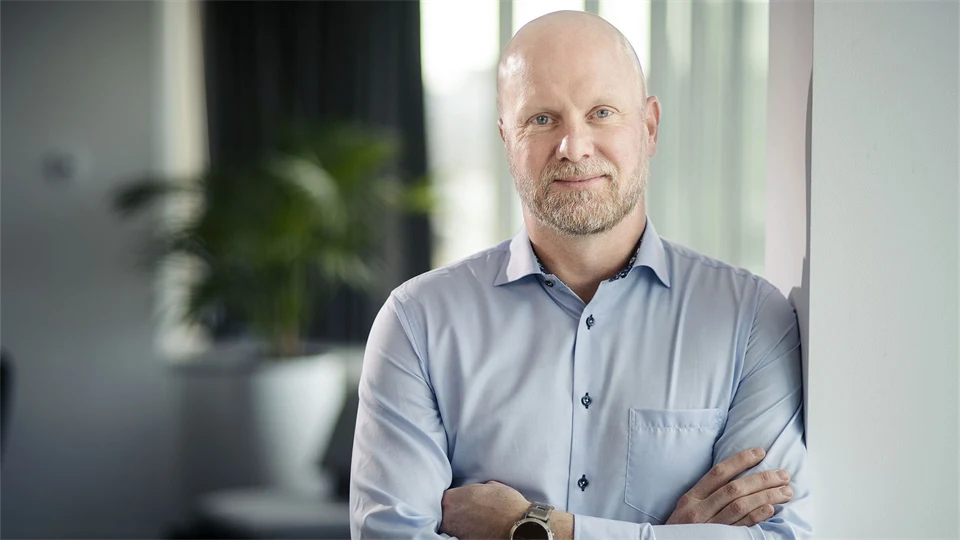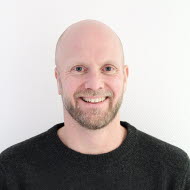Disputation i Kvalitetsteknik med Jonas Boström
Välkommen till en disputation i ämnet Kvalitetsteknik med Jonas Boström som kommer att försvara sin avhandling "Designing for Quality Emergence in Healthcare – Reflection and Action".
Jonas avhandling visar på varför svensk hälso-och sjukvård behöver bli bättre på att möta komplexa utmaningar. Men också hur dessa utmaningar skulle kunna hanteras och faciliteras i tider där resurserna minskar. Genom användardrivna perspektiv där samarbete, samskapande och relationalitet är centrala begrepp blir kvalitet något som växer fram dynamiskt i sammanhang där vi inte alltid vet vart vi är på väg och hur vi ska ta oss dit. Avhandlingen presenterar ett systematiskt och inlyssnande tillvägagångssätt för organisationer som har behov av att navigera i denna komplexa tid vi lever i.
Titel på avhandling: Designing for Quality Emergence in Healthcare – Reflection and Action
Datum: 14 mars 2025
Tid: 10:00
Plats: Q221, Campus Östersund samt via Zoom
Handledare:
Johan Lilja, huvudhandledare
Helene Hillborg, bihandledare
Ingela Bäckström, bihandledare
Opponent: Professor Henrik Eriksson, Högskolan Väst
Ordförande: Professor Kristen Snyder, Mittuniversitetet
Betygsnämnd:
Professor Sofia Kjellström, Jönköping University
Professor Mattias Elg, Linköping Universitet
Professor Bodil Landstad, Region Jämtland - Härjedalen
Reserv: Professor Per-Olov Hedvall, Mittuniversitetet
Meeting ID: 616 0145 4096
Abstract
A world of increasing uncertainty and global challenges is not in a possible future, it is here and now. The welfare system and healthcare organizations are particularly affected, with demands from citizens and politicians that healthcare should offer effective, accessible, good and equal care – welfare quality. Today, however, this is difficult to meet and/or exceed with the large decrease in resources if they are used as they always have been before.
The difficulties and challenges today lie in ensuring good and equal care for the large groups of people with multiple illnesses, and patients who need long-term care from different healthcare providers. An already complicated system has become even more complex. Quality- and organizational research has shown conflicts among different ways of working to improve, innovate and change the organization and the methods that support the daily work of providing healthcare services. Furthermore, quality research shows that there are knowledge gaps to be filled when it comes to understanding how complex problems should be handled and what kind of knowledge could contribute.
The overall purpose of this thesis was therefore to explore collaborative and participative perspectives and practices for healthcare quality development in times of transformational and complex change.
Since the purpose was exploratory, the methodology was based overall on a qualitative, interpretative and hermeneutical approach. Three research questions were formulated and led to four studies. The first study was a literature review, and this was followed by a second study, which was a case study influenced by experience-based co-design (EBCD). The third study, aimed at understanding the leader perspective, had a deep-interview design, and the final study followed transformational and complex change using scientific social media with an action research approach.
The thesis results overall strengthen the research that shows that participatory and collaborative approaches are needed to connect perspectives and bolster relations – factors that are shown in research as being necessary to navigate in complex change and transformation. Furthermore, the thesis shows how to facilitate navigating in a way that could increase opportunities to participate, be part of change and have agency. However, frustration is also found around methods and perspectives perceived as more abstract and reflective and which can sometimes be slower than what solutions-oriented professionals, who work under great time pressure and with scarce resources, are used to. Furthermore, the thesis highlights a problem that has also been described in previous research and that signals the (in)ability to both share new knowledge and to absorb it.
The thesis conclusion is that there is potential to meet up with a more dynamic way of relating to the concept of quality. Achieved by becoming a listening organization and acknowledging skills to assist in facilitating complex change – through reflection and action.
Some key principles:
- First, bring into a complex process multiple perspectives to explore, sense and analyse the problem with a collaborative approach – facilitated by people trained to do so.
- Explore through action-oriented approaches with systematic reflection – facilitated by people trained to do so.
- Explore for tensions and potential conflicts of interest and use them to create energy – facilitated by people trained to do so.
- Stay in contact with the organization using “medföljning” more than following-up and evaluation – facilitated by leaders trained to do so.

